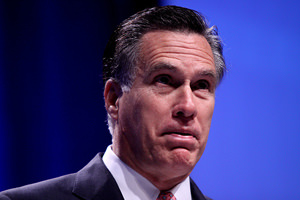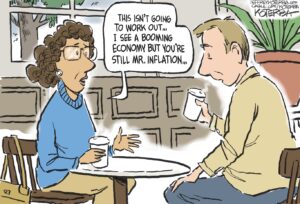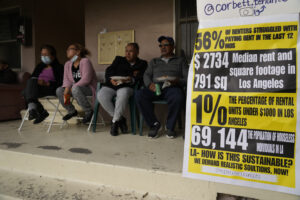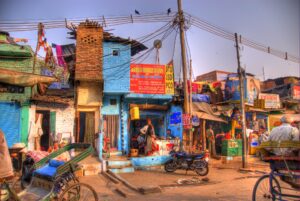Mitt Romney’s ‘Reagan Economic Zone’
Not content to limit his worship of Ronald Reagan to the usual dewy-eyed remembrances and genuflection practiced by all Republican presidential candidates, Mitt Romney has decided to build an international monument to the former president in the form of a multilateral free trade zone.
Not content to limit his worship of Ronald Reagan to the usual dewy-eyed remembrances and genuflection practiced by all Republican presidential candidates, Mitt Romney has decided to build an international monument to the former president in the form of a multilateral free trade zone.
The “Reagan Economic Zone” is but one of 59 proposals (by the L.A. Times’ count) contained in Romney’s 160-page jobs plan titled “Believe in America: Mitt Romney’s Plan for Jobs and Economic Growth.”
Romney also wants to roll back what’s left of government regulation, sanction China and — you guessed it — cut taxes.
The White House contender claims his conservative economic agenda will create 11 million jobs in his first term, although we’ve already tried some of these ideas and found them lacking. — PZS
Your support matters…Mitt Romney / Believe in America:
Create Reagan Economic Zone
But we can hardly rest there, for there is an opportunity to pursue a gamechanging multilateral agreement among like-minded nations genuinely committed to the principles of open markets. As president, Mitt Romney will pursue the formation of a “Reagan Economic Zone.” This zone would codify the principles of free trade at the international level and place the issues now hindering trade in services and intellectual property, crucial to American prosperity and that of other developed nations, at the center of the discussion.
Such a partnership would be extraordinarily attractive to most developed nations, and to those developing nations that have embraced free enterprise and open markets. With membership open to any nation willing to abide by the rules, two primary U.S. objectives would be fulfilled. First, as the most open and innovative economies came together, the dynamism of the resulting economic zone would serve as a powerful magnet, drawing in an expanding circle of countries willing to abide by the rules in exchange for greater access to one another’s markets. At the same time, it would also serve as a mechanism for confronting nations that violated trade rules while free-riding on the international system. Creating a large open market, and excluding countries that failed to respect the rule of law, would prevent cheaters from prospering and provide a major incentive for them to reform.
Independent journalism is under threat and overshadowed by heavily funded mainstream media.
You can help level the playing field. Become a member.
Your tax-deductible contribution keeps us digging beneath the headlines to give you thought-provoking, investigative reporting and analysis that unearths what's really happening- without compromise.
Give today to support our courageous, independent journalists.






You need to be a supporter to comment.
There are currently no responses to this article.
Be the first to respond.